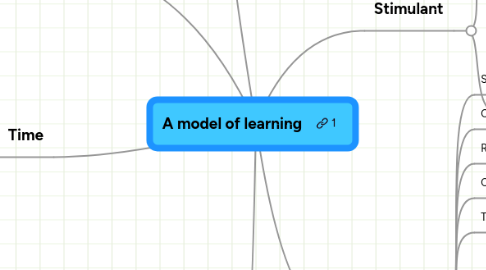A model of learning
Tim Danesにより


1. Resources
1.1. People
1.1.1. Self
1.1.2. Others
1.2. Materials
1.2.1. Consumables
1.2.2. Non-consumables
1.3. Tools
1.3.1. Digital
1.3.2. Analogue
1.4. Spaces
1.4.1. Digital
1.4.2. Analogue
2. Communication
2.1. Type
2.1.1. Auditory
2.1.2. Non-verbal
2.1.2.1. Written
2.1.2.2. Physical
2.2. Format
2.2.1. Digital
2.2.2. Analogue
2.2.3. Combination of Digital and Analogue
3. Creation
3.1. Physical
3.2. Psychological
3.2.1. Imagination
4. Time
4.1. Phases
4.1.1. Past
4.1.2. Present
4.1.3. Future
4.2. Elements
4.2.1. Practice/Repetition
4.2.2. Change
4.2.3. Reflection
4.2.4. Ambition
5. Stimulant
5.1. Physical
5.1.1. Visual
5.1.2. Auditory
5.1.3. Touch
5.1.4. Taste
5.1.5. Smell
5.2. Psychological
5.2.1. Fun
5.2.2. Freedom
5.2.3. Love
5.2.4. Belonging
5.2.5. Survival
6. Constraint categories
6.1. Stimulant
6.2. Communication
6.3. Resources
6.4. Creation
6.5. Time
6.6. To be allocated
6.6.1. use it or lose it syndrome
6.6.2. as soon as you have mastered something, it changes
6.6.3. time
6.6.4. tech doesn't work
6.6.5. availability, we need more IWB's at the NCCC
6.6.6. lack of expertise
6.6.7. no interest
